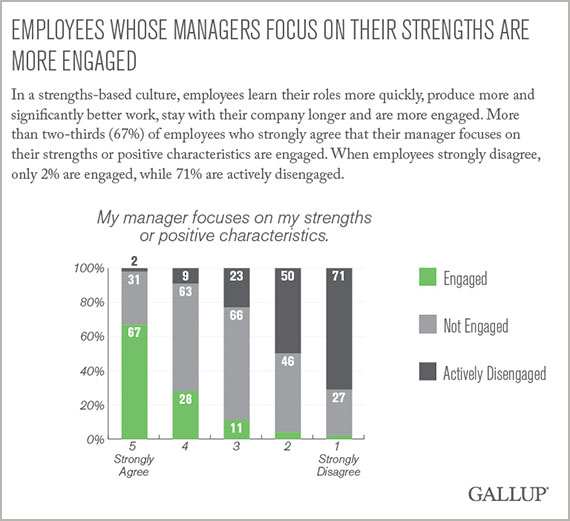Here’s confirmation of what most of us already know if we are paying attention – Gallup researchers studying human behavior and the impact of leveraging people’s strengths have discovered that building on employees’ strengths is a more effective approach to creating high performing teams than a fixation on improving weaknesses. A strengths-based culture is one in which employees learn their roles more quickly, produce more and significantly better work, stay with their company longer and are more engaged. Based on a recent survey, a vast majority (67%) of employees who strongly agree that their manager focuses on their strengths or positive characteristics, are engaged at work. Compare that to employees who strongly disagree and we find 71% of employees are actively disengaged and often aggressively disrupting and poisoning others in the workplace.
When managers help employees grow by leveraging and developing their strengths, they engage their team members and create a positive and constructive work environment and culture. The best thing a manager can do is to place his or her employees in jobs that allow them to use the best of their natural talents and continuously build skills and knowledge to further develop and apply their strengths.

Here’s the real kicker about engaged staff – they stay! Too many talented employees leave and join the competition or start their own enterprise because they are not engaged in work that focuses on their strengths and passion. This is very disconcerting in light of the war for talent and the accelerating pace of retiring Boomers. The cost of losing and trying to find new talent is extremely high in terms of money, time and potential negative impact on workplace culture. It makes more sense at every level to keep your best and work from their strengths.
Pay now, or pay later, but pay you will if you don’t get this part of the equation right.
If you want more information on this topic follow this link: http://www.gallup.com/businessjournal/167462/employees-strengths-company-stronger.aspx


Recent Comments